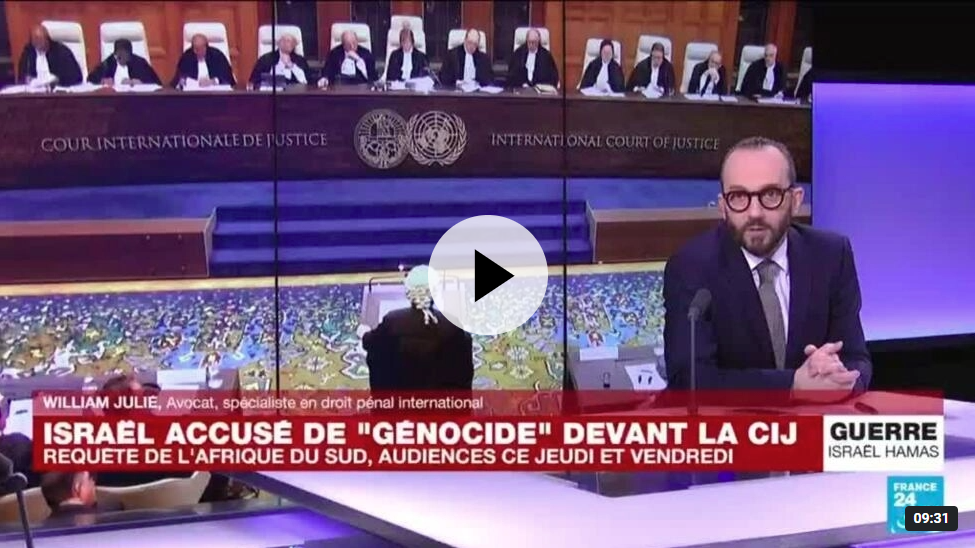
Maître Julié was invited by France 24 following the hearing at the International Court of Justice on the case 𝘚𝘰𝘶𝘵𝘩 𝘈𝘧𝘳𝘪𝘤𝘢 𝘷. 𝘐𝘴𝘳𝘢𝘦𝘭 regarding alleged violations of the Convention on the Prevention and Punishment of the Crime of Genocide by Israel against the Palestinian people in Gaza.
In a politically and religiously charged topic, where convictions can clash with international rules, it is important to go back to the basic fundamental legal principles.
The aims of the case
The proceedings were instituted by South Africa, a third party to the conflict, and aim at determining the merits of the case and the provisional measures to prevent genocide in Gaza. Today and tomorrow’s hearings concern the latter.
The ICJ in the case 𝘜𝘬𝘳𝘢𝘪𝘯𝘦 𝘷. 𝘛𝘩𝘦 𝘙𝘶𝘴𝘴𝘪𝘢𝘯 𝘍𝘦𝘥𝘦𝘳𝘢𝘵𝘪𝘰𝘯, established a precedent by issuing a ruling demanding a ceasefire. However, if the ICJ was to rule similarly here, it still does not have any coercive power to enforce such a decision. While the Security Council of the United Nations has this power, we may anticipate that the United States will veto any decision.
Nonetheless, a ruling asking for a ceasefire would carry significant political weight, and would be a step towards less suffering. These proceedings will allow a discussion with Israel notably on their argument of self-defense before a judicial body.
Proving the crime of genocide
For the crime of genocide to be constituted, it requires proving both the material and mental elements as they are defined both in the Genocide Convention and the Rome Statute.
The material element is fulfilled when at least on of the underlying acts constitutive of the crime is proven. These include murder, and serious bodily or mental harm against a national, ethnic, racial or religious group.
The mental element is more complex as it regards the special genocidal intent to destroy in whole or in part a national, ethnical, racial, or religious group. While South Africa will claim that Israel targeted and is targeting the civilian population, Israel will, most likely, claim that they are only targeting Hamas and its branches.
While not legally unprecedented, this case remains of great interest and highlights the political intricacies of a third-part claim before the ICJ and is a reminder of the importance of the rule of law.